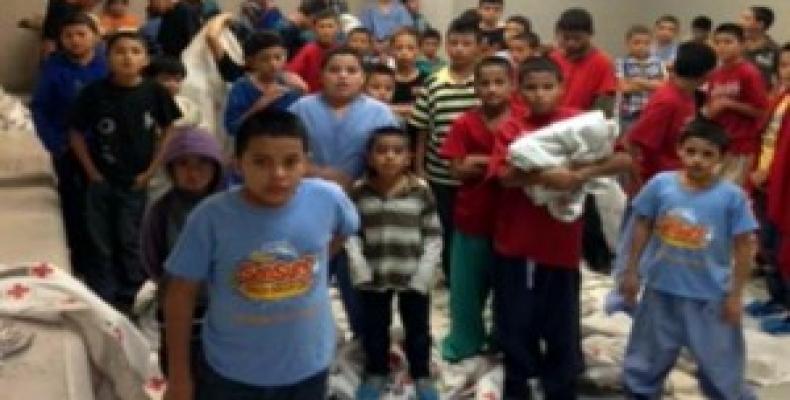New York, January 26 (RHC-teleSUR) -- Children fleeing violence in Central America have been subjected to sexual abuse, deprived of food and forced to work without pay by unchecked foster homes in the United States, an AP investigation has revealed.
Since 2013, thousands of minors have made the perilous journey to the U.S. unaccompanied, running from drug trafficking and gang warfare in Honduras, Guatemala and El Salvador.
With wave after wave of desperate children fleeing to the U.S., the number of beds to accommodate the minors has been deemed inadequate, while the U.S. Department of Health and Social Services relaxed its rules over the past three years in order to streamline the movement of children to adoptive homes.
As the influx swelled, regulations slackened further and criminal background checks on potential guardians were left by the wayside
In April 2014, the agency ceased demands to see original birth certificates to verify the identity of those wishing to adopt children. The next month they no longer required the adults to fill in forms with personal information and finally they stopped criminal checks by the FBI.
Throughout the relaxation of rules, AP has recorded more than 24 cases of children who have suffered sexual abuse, maltreatment or have been forced to work without pay.
The report cites the case of Marvin Velasco, a young boy from Guatemala who arrived at the border in September 2014 and was taken to the apartment of a sponsor in Los Angeles, where he was confined for three weeks by the father of his brother-in-law.
“He told the authorities that he was going to take me to school, that he was going to feed and dress me, but it wasn’t like that at all. All that time the only thing that I was doing was praying and thinking about my family,” said Velasco.
The young boy escaped with the help of the son of his captor and ran to a church where he found a legal representative. He now lives with a family of Guatemalans.
According to the lawyer of the boy, Gina Manciati, the home of the man who took in Velasco was never inspected by a professional before or during his stay there.
Velasco claims that nine other people were living in the home of his relation, who he demanded money from and threatened with punishment.
AP also noted cases of girls forced to work in homes, restaurants or bars or even prostituted. Experts recorded examples of children being raped by family members or people linked to their sponsors.
Far from isolated cases, experts believe the phenomenon is common. Jacqueline Bhabha, director of investigations of the Harvard University FXB Center for Health and Human Rights, told Proceso the cases are “clearly the tip of the iceberg. We would never allow this to happen to U.S. kids.”
Activists also told AP that they continually warned the U.S. government about the influx of children and even about the existence of “false sponsors” in Colorado, Iowa and Minnesota.
AP reports that authorities declined to comment on the slack rules and lack of personnel overseeing the procedure, but they did say they had signed a deal to construct new accommodation.
“We are not taking shortcuts. In general the program functions well,” said department spokesperson Mark Weber.


